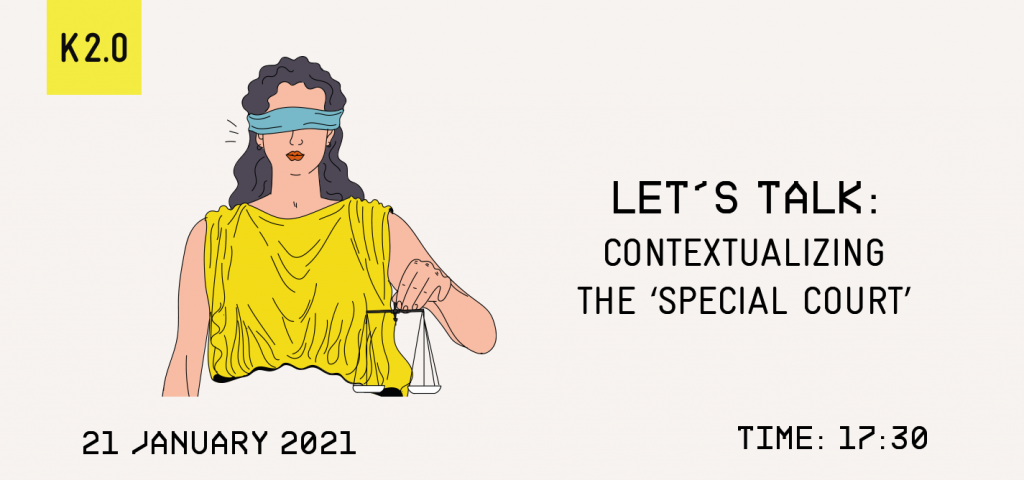
20.01.2021.
Let’s Talk: Contextualizing the ‘Special Court’
Kosovo Specialist Chambers, nataša kandić, Selim SelimiEstablished by a 2015 vote in the Kosovo Assembly, following years of international investigations through the Council of Europe and the EU, the Kosovo Specialist Chambers finally filed its first indictments in 2020. Among the people charged with war crimes and crimes against humanity are leading KLA figures such as now former Kosovo President Hashim Thaçi and senior politicians Kadri Veseli, Jakup Krasniqi, Rexhep Selimi and Salih Mustafa.
The Specialist Chambers are the fourth institution responsible for investigating alleged war crimes related to the 1999 Kosovo war, following UNMIK, the ICTY and EULEX. But ever since the justice mechanism was established under immense pressure from the U.S. and the EU, it has served to divide Kosovo Albanians.
Many see it as an attempt to smear the KLA’s just war against the oppressive ’90s Serbian regime. In this view, the Specialist Chambers is unjust due to its perceived “ethnic” character, with critics pointing to its mandate to pursue serious crimes committed between 1998 and 2000 having been explicitly founded upon an investigation into specific allegations of crimes reportedly committed by members of the KLA.
Others see the Specialist Chambers as an opportunity to implement judicial transitional justice measures and to consequently bring to justice perpetrators of war crimes that have victimized many people of different ethnic backgrounds.
Key figures from Kosovo’s political scene are now beginning to appear in the dock in The Hague, but with their trials likely to dominate headlines for years to come, it’s important to once again take stock. Why have the Specialist Chambers triggered so much controversy? What further consequences will it bring to the domestic political sphere? What implications will this have for Kosovo’s international reputation? How will it impact the ongoing Kosovo-Serbia negotiations? And what will all this mean for the life of the average Kosovar citizen?
To get the discussion going we’ve invited prominent figures to share their thoughts and experience:
– Selim Selimi, Minister of Justice of the Republic of Kosovo
– Nataša Kandić, founder of the Humanitarian Law Center
The discussion will be moderated by K2.0 editor-in-chief Besa Luci.
Due to the pandemic, the discussion will be organized online. Translation in English and Serbian will be provided — send us a direct message indicating which language you require translation for and we’ll do the rest.














